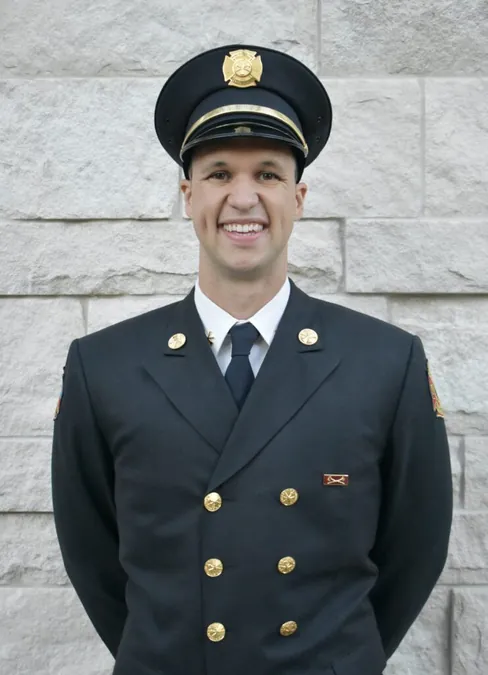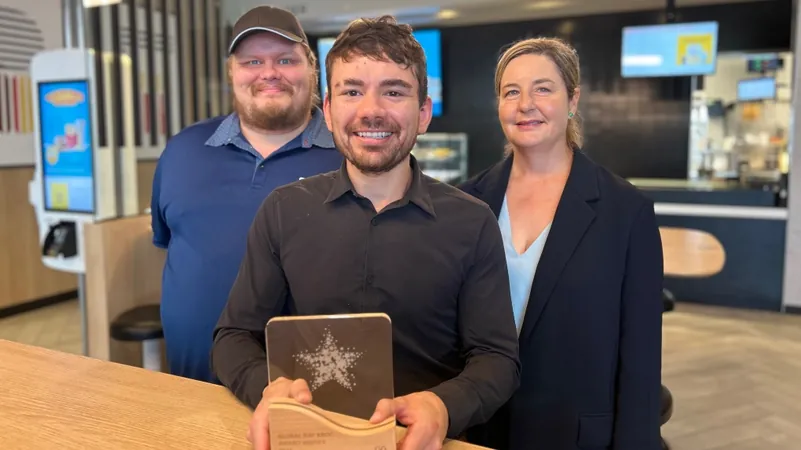
How Bryden Pelletier is Revolutionizing Firefighter Health and Safety
2024-09-27
Introduction
Bryden Pelletier’s journey to becoming the chief of occupational health, safety, and wellness at Vancouver Fire Rescue Services is anything but conventional. His unique experiences have equipped him to make a profound impact on the health and safety of firefighters in his department and beyond.
Early Involvement and Leadership During COVID-19
Early in his career, Pelletier became actively involved with the firefighters’ union, identifying health and safety as a key area where he could contribute significantly, even as a junior member. When the COVID-19 pandemic struck, he seized the opportunity to step into a more prominent leadership role, leveraging his expertise in mass casualties. This led to his co-chairing the department’s COVID task force, where his effective leadership caught the attention of decision-makers, culminating in his current position.
Groundbreaking Health Initiative
One groundbreaking initiative spearheaded by Pelletier is the First Responder Cardiology Research Education and Early Detection program. In collaboration with the University of British Columbia and Sports Cardiology BC, this blood screening program was initially a two-year pilot project designed to identify cardiovascular issues among first responders. Pelletier recalls a poignant moment when a participant was diagnosed with a severe heart condition—an almost certain death sentence without early intervention. The man expressed immense gratitude, saying, “Thanks. Because of you, I get more Christmases with my kids now.” This affirmation drives Pelletier's commitment to saving lives.
Expanding the Program
The program has also expanded to include screenings for other occupational diseases and cancers recognized by WorkSafe BC. Firefighters undergo annual screenings for specific cancer markers, with the goal of detecting these diseases early, thus improving treatment outcomes. Pelletier emphasizes the dual approach of not just screening but also initiating preventative measures.
Addressing PFAS Exposure
On the prevention front, Pelletier is addressing serious health concerns regarding per- and poly-fluoroalkyl substances (PFAS), which are known carcinogens found in firefighters' protective gear. When research indicated that PFAS is absorbed through the skin, Pelletier rallied the union's clothing committee to respond swiftly. They were pioneers in North America, ordering PFAS-free gear as soon as it was tested and available, thus significantly reducing exposure to harmful substances.
Mental Health Initiatives
Mental health is another critical area that Pelletier has focused on. Recognizing the psychological toll that the job can take—especially for probationary firefighters encountering death for the first time—he implemented a year-long support program. This initiative connects new recruits with psychologists, encouraging candid discussions about their experiences and mental health challenges. So far, feedback from the first cohort, which launched in August, has been overwhelmingly positive.
Conclusion and Future Outlook
While Pelletier acknowledges that it may take years to fully gauge the success of these programs, the progress made so far is encouraging. His philosophy revolves around continuous improvement and learning from experiences. He encourages fellow health and safety professionals to anticipate future challenges and to act proactively rather than reactively.
Bryden Pelletier’s initiatives not only aim for immediate improvements in firefighter health and safety but also set a precedent for mental health support across fire services. His work serves as a model for others in the industry, proving that with vision, dedication, and a commitment to health and safety, positive change is not just possible, but attainable.
Stay tuned to see how Pelletier's innovative approaches could shape the future of health and safety standards in firefighting across North America!









 Brasil (PT)
Brasil (PT)
 Canada (EN)
Canada (EN)
 Chile (ES)
Chile (ES)
 España (ES)
España (ES)
 France (FR)
France (FR)
 Hong Kong (EN)
Hong Kong (EN)
 Italia (IT)
Italia (IT)
 日本 (JA)
日本 (JA)
 Magyarország (HU)
Magyarország (HU)
 Norge (NO)
Norge (NO)
 Polska (PL)
Polska (PL)
 Schweiz (DE)
Schweiz (DE)
 Singapore (EN)
Singapore (EN)
 Sverige (SV)
Sverige (SV)
 Suomi (FI)
Suomi (FI)
 Türkiye (TR)
Türkiye (TR)